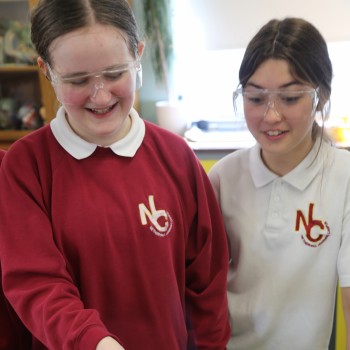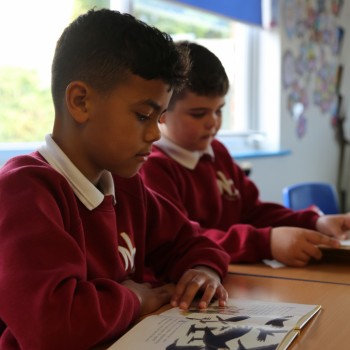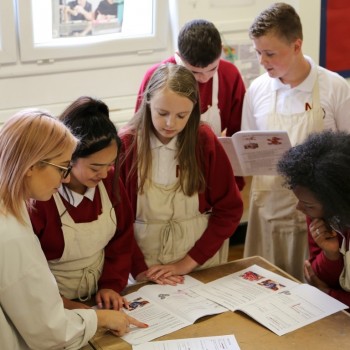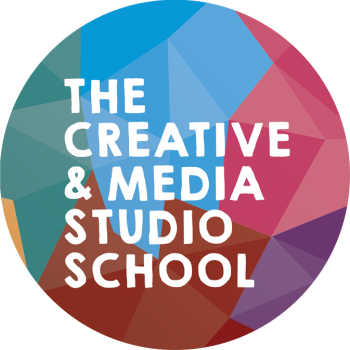Textiles
![]()
Why study Textiles?
Interested in a career in interior or fashion design? Textiles is a versatile subject that involves experimenting with a wide range of techniques and processes. Textile Designers are expected to work in a multi-disciplinary way to create ideas. These include Fashion Textiles (specialist areas might include fashion and clothing, accessories or innovative clothing for theatre or film). Textiles for Interiors (fabrics, wallpapers, upholstery, bed linens and curtains or more generally as surface designers for packaging, greetings cards and wrapping paper). Fine Art Textiles (a form of personal expression using mixed media constructions, tapestries, soft sculptures, wall hangings and installations).
Which syllabus do we follow?
The Creative & Media Studio School follows the AQA specification for A level Textiles.
What is the course about?
During your Textiles A Level you will develop a wide range of skills. You will explore different techniques and combine a variety of hand and digital processes including; screen printing, sublimation printing, hand dying, resist dying, block printing, hand embroidery, machine embroidery, applique, reverse applique, fabric manipulation & computer aided design using Photoshop and Illustrator. You will also learn pattern cutting and garment construction skills which will enable you to create exciting final outcomes. To support classroom learning, you will visit galleries, museums and craft exhibitions, receive visits from Textiles Practitioners as well as having the opportunity to undertake work placements and prepare you for progression.
Stage 1 – personal investigation
This is a practical investigation supported by written material. Students are required to conduct a practical investigation into an idea, issue, concept or theme supported by written material. The focus of the investigation must be identified independently by the student and must lead to a finished outcome or a series of related finished outcomes. The investigation should be a coherent, in-depth study that demonstrates the student’s ability to construct and develop a sustained line of reasoning from an initial starting point to a final realisation. The investigation must show clear development from initial intentions to the final outcome or outcomes. It must include evidence of the student’s ability to research and develop ideas and relate their work in meaningful ways to relevant critical/contextual materials. The investigation must be informed by an aspect of contemporary or past practice of artists, photographers, designers or craftspeople.
Stage 2 - Externally set assignment
Separate question papers will be provided for each title. Each question paper will consist of a choice of eight questions to be used as starting points. Students are required to select one. Students will be provided with examination papers in February of year two.
Preparatory period – from 1 February
Supervised time – 15 hours
Assessment
Component 1: Personal investigation
No time limit
96 marks
60% of A-level
Component 2: Externally set assignment
Preparatory period + 15 hours supervised time
96 marks
40% of A-level
Specific Entry Requirements
Students applying for A Level Textiles should achieve at the very least a Level 4 in English Language, Maths and 3 other GCSE subjects. Students invited for interview will be asked to prepare a portfolio of creative work showcasing your talent and individuality. This work will be assessed by the subject specialist as part of the interview process and will contribute to the decision of an offer being made.
Would You Like To Find Out More?
Maybe you have a question about the different range of units you can study? Or maybe you want a bit more info on the resources? Whatever your question, the Tutors are more than happy to answer any that you have. Get in touch and we’ll get back to you with all the answers.
Download:


 Welcome from the Principal
Welcome from the Principal



